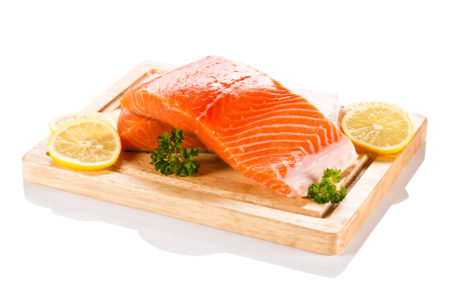Get the facts on the popular ketogenic and Whole30 diets.
By Rebecca L. Bennett
Keto
 How does it work?
How does it work?
The ketogenic diet calls for minimizing carb intake and maximizing fat intake to cause the body to enter a state of ketosis. Without carbs to burn for energy, the body begins processing fat into organic compounds called ketones and burning them instead.
Does it really work?
Keto has been shown to be effective for short-term weight loss since it encourages the body to burn fat as energy and shed water weight, and since it can reduce the dieter’s cravings for carbs. According to the Epilepsy Foundation, the ketogenic diet can reduce and even prevent seizures in children who haven’t responded to medications. However, results for regular dieters seeking long-term weight loss are as foggy as some new keto dieters feel as they struggle to acclimate to ketosis. Some health professionals even believe long-term keto dieters may actually damage their metabolism, stress the liver, hinder the body’s ability to build endurance and strength, and lose muscle tissue, among other issues.
Eat this:
organic chicken and eggs
grass-fed beef, wild-caught fish
avocado oil, coconut oil and olive oil 3 flax seeds and nuts (not cashews)
yogurt, cheese, butter
spinach, kale, chard
broccoli, zucchini, cauliflower
water, tea
coffee (without sugar)
bone broth
70 percent dark chocolate
alcohol without sugar
Not that:
soda and juice
sports drinks and flavored water 3 sweeteners and condiments
candy and desserts
cereal
potatoes
bread, pasta, rice
legumes
chips and other processed snacks 3 beer
fruit
margarine
Whole30

How does it work?
The Whole30 diet is a 30-day nutrition-reset program designed to eliminate unhealthy cravings and eating habits, and heal and balance out the metabolism, digestive tract and immune system. The diet calls for cutting out “all the psychologically unhealthy, hormone-balancing, gut-disruption, in inflammatory food groups” for a full month and being mindful of how your body feels during and after the diet.
Does it really work?
The Whole30 can benefit people who struggle with food sensitivities, but eliminating certain foods can come with physical and psychological risks. Experts suggest anyone interested in undertaking an elimination diet should work closely with an experienced registered dietitian nutritionist.
“Any diet, whether it is low-carb, high-carb, low-fat, high-fat, high- protein and everything in between can cause short-term weight loss, but the research is very clear that 95 percent of those who lose weight on a diet will gain all the weight back and maybe more within two years,” says Kaylee Tremelling, a registered dietitian.
As The Little Dietitian, Tremelling helps her clients forge positive relationships with food and embrace balanced eating habits as a lifestyle. She encourages clients to let go of their food “rules” and instead, learn to eat mindfully, listening to their hunger and fullness cues.
“Instead of focusing on weight, I believe we should focus on overall health by focusing on healthy behaviors and good self-care,” she says. “These can include eating a balanced and nourishing diet, moving your body in an enjoyable way, drinking water, sleeping seven to nine hours a night, making time for activities that you enjoy, meditation and spending time with loved ones.”
Eat this:
lean meats
seafood
eggs
vegetables
some fruit and juices 3 natural fats
herbs, spices and seasonings 3 ghee/clari ed butter
vinegar (except malt vinegar)
Not that:
real or artificial sugar 3 alcohol
grains
most legumes
dairy
carrageenan, MSG, sulfites
baked goods
junk foods, even “healthier” versions

